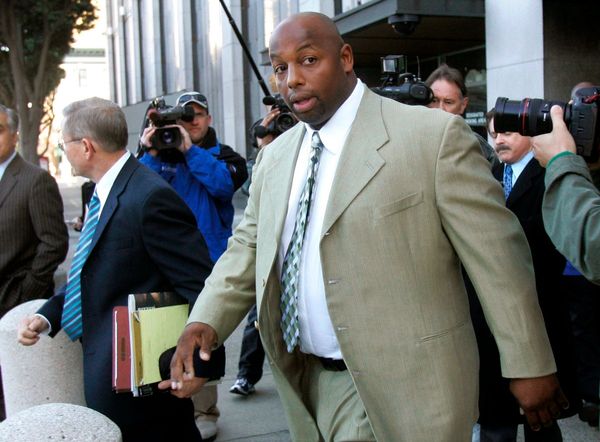
Lynette Medley wasn’t usually shocked when a client divulged they’d done something illegal. As a sexual health therapist in Philadelphia, she focused on supporting vulnerable low-income people who engaged in risky and even criminal behavior. But she was appalled – and flooded with memories – when a young woman confided that she worked as a sex worker so she could afford to buy basic hygiene products, including tampons.
“How is this still happening?” Medley thought to herself. “I had to go through this pain. My daughter had to go through this pain – and nothing seems to have changed.”
Decades earlier, when she was in her 20s, Medley had suddenly found herself a single mother with two children to support, after her then husband was sentenced to prison for life. Overnight, she went from middle class to poor. Family members helped with food and other essential items but no one ever offered sanitary pads or tampons. Each month, she struggled to find a way to pay for these products for herself and her then teenage daughter Nya McGlone. Some months she used paper towels to contain her period. Other times, she would find herself arguing with McGlone in the middle of a supermarket when her daughter would ask for the more costly super pads she needed for her heavy flow.
Medley was ashamed to share this with anyone. Now, as she listened to her client, she promised she’d help her get the products she needed. She made calls and asked people for donations. In the process, she learned how widespread the need was.
Gradually, her therapist office transformed into a period product hub filled with stacks of supplies, which she and McGlone distributed. They started in 2020 with up to 85 deliveries a week. When the pandemic hit, the number rose to 300. In 14 months, they distributed over 6m products through their non-profit No More Secrets.
“It wasn’t something we chose,” says Medley. “It chose us.”
•••
Period poverty is rampant in the US, with serious health and economic implications for women and girls. There were an estimated 16.9 million women who menstruate living in poverty in 2020, and a study conducted in 2017-2018 found almost two-thirds of women with low incomes in St Louis, Missouri, could not afford menstrual products. Nearly half sometimes had to choose between buying food or menstrual products.
Low-income working women who can’t afford pads or tampons often stay home when they get their periods rather than risk being seen with stains on their clothing, putting the jobs they need at risk. Girls skip school and then fall behind or drop out. Both groups put their health at risk and many suffer emotional distress.

“Anywhere there’s poverty, there’s period poverty,” says Michela Bedard, executive director of Period., a global non-profit that advocates and distributes period products. It has more than 350 chapters around the world, and more than 300 of them are in the US. “If we really care about gender equity and economic security, this is an easy fix for the US to make, but it’s something that historically we’ve never really talked about as an essential good.”
The pandemic made period poverty even worse: women were the majority of employees in the hospitality and retail industries, where layoffs were steep. What’s more, low-income women who historically depended on public spaces for essential goods, such as schools, shelters, courthouses, libraries and community centers, suddenly lost access to the distribution of many products, including tampons.
On top of that, menstrual products were hit by a shortage at the height of the pandemic due to supply chain constraints. The price of tampons was 13% higher over the past year due to high inflation – above the 6.5% overall inflation rate in 2022, according to NielsenIQ.
Experts say the problem is solvable but must be tackled in a variety of ways. This includes more education and discussion about menstruation and menstrual inequity as well as legislation that will guarantee less expensive and even free menstrual products. Change has begun at the state level. New York was among the first states to eliminate sales tax on period products, in 2016. Two years later, it mandated free menstrual products in schools, shelters and prisons.
However, 22 states still charge sales tax, ranging from 4% to 7% in Indiana, Mississippi and Tennessee. And only 15 states and Washington DC have laws providing free distribution in public schools. Other states are taking steps back: Florida introduced a bill that would ban conversation about menstruation and human sexuality topics for students under sixth grade, and Idaho recently blocked a bill that would offer free products in schools. For now, most women and girls who can’t afford menstrual products rely on non-profits that offer free items.
•••
On a Saturday morning, a hallway on the eighth floor of an office building in Inwood, in northern Manhattan, is taken over by sounds of women asking: “Regular or super?” Women of all ages, most with young children, line up for the pads distribution at Her Village, a non-profit that provides free menstrual and baby supplies.
The women carry grocery or shopping bags. Most of them shyly respond when asked if they need regular or super pads. The non-English speakers just point as soon as they recognize the dark blue packages or the bright green ones piled in the back of the room on a table. In the course of an hour, more than 90 women show up and each leaves with a three-month supply of menstrual products.
Some of them greet Chantal Alison-Konteh, founder of the non-profit, asking about her and her family. Her excitement is palpable. “Is this the best part of your day?”, asks one of the volunteers, Tanitia Bee. “This is the best part of the week,” Alison-Konteh replies, with the same contagious smile she uses to greet everyone who walks in.
She founded Her Village in 2016 as a way to give back to her community in the Bronx, which had helped her when she couldn’t afford diapers after her daughters were born. Working with shelters across the city, she noticed that many of the women she met were also in need of menstrual products. In May 2020, with the world shut down and public spaces closed, Alison-Konteh turned the tiny apartment she shares with her husband and four children into a period product hub. She and her husband drove around making door-to-door deliveries to people who reached out to her through social media.
“Because of these supplies, I can change my pads when I need to instead of leaving them on for longer due to lack of supply,” says one recipient. Adds another: “I can afford to bring my daughter more vegetables and fruits home because I’m a part-time worker.” The responses are part of an anonymous survey Alison-Konteh encourages everyone to take as they collect the products.

Other activists, such as Eiko La Boria, bet on a combination of product distribution and lobbying for legislation to ease period poverty in the US. Since 2019, La Boria has been distributing menstrual products in Hudson county, New Jersey, through her non-profit the Flow Initiative. The basement of the Victorian house she shares with her family is packed with pads and tampons. Twice a week, she spends her mornings dropping off these products at shelters and food banks across town. In a month, her initiative distributes 36,000 products. When she’s not distributing items, she is meeting with legislators pushing for free products in public spaces, especially in schools, as a chair of the menstrual equity subcommittee of the coalition Thrive New Jersey.
New Jersey is still struggling to get a bill passed to distribute free menstrual products in schools. Activists have been trying ever since New York passed its legislation, but so far haven’t succeeded.
In September, La Boria had the opportunity to share the problems she sees every day with legislators. She testified in person before the assembly committee on women and children in New Jersey on a menstrual equity package of 19 bills.
“I have learned that period poverty is shrouded in silence, stigma and shame,” said La Boria in her testimony. “The time is now to create a new normal where access to menstrual products is not only the right thing to do, but the hygienic thing to do.”
The school bill didn’t pass, but on the day of La Boria’s testimony, seven other menstrual equity bills passed in New Jersey, including measures providing free tampons and pads to shelters, food pantries, child welfare programs and through the state’s Medicaid program.
In 2021, the US congresswoman Grace Meng of New York introduced the Menstrual Equity for All Act – legislation that would put menstrual products in schools, homeless shelters, and all federal buildings nationwide. But the bill hasn’t moved in Congress.
While proposed legislation stalls, menstrual products distribution continues. Medley and McGlone, the mother and daughter duo, make sure that anyone who walks into their office gets a three-month supply of the products they need.
Four days a week, Medley and her daughter are at Spot Period, the first menstrual hub in the US, built in 2021 through a crowdfunding that raised $10,000. The 2,500-square-foot space in Germantown, Philadelphia, is stocked with pads and tampons, plus access to wifi, toilets and workshops on dealing with your first period, using menstrual products and learning about conditions such as endometriosis. The days when Medley and McGlone are not there, they are driving across town in the Spot on the Go, the first mobile menstrual health clinic.
Women from as far as Virginia and North Carolina are driving to Philadelphia to get menstrual products from the duo. No access to clean water, people going to jail for stealing tampons or exchange of sexual favors for products – these are all stories Medley hears from the women and girls she helps.
Her resolve then only grows stronger. “One thing that I always tell them is: ‘I understand. I’m not in your space right now, but I’m here with you and I’m gonna be along with you on this journey.’”







